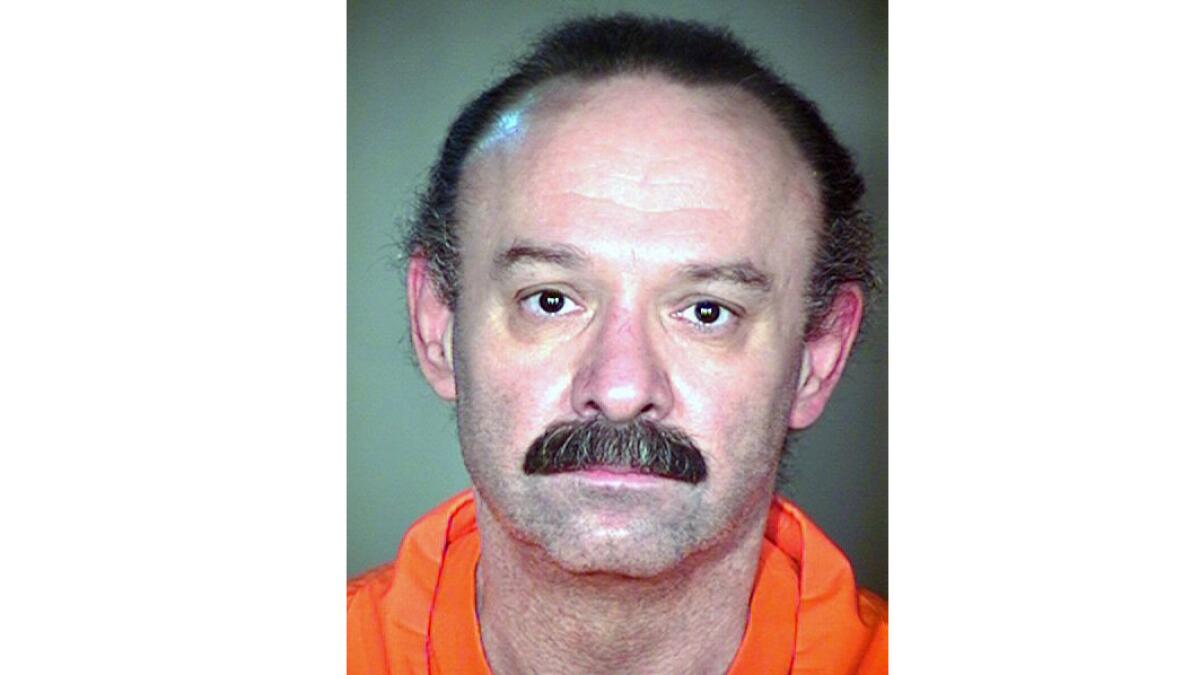Editorial: Executions should not be run by trial and error

- Share via
For the third time this year, state executioners administering a lethal injection to a condemned man have botched it. This time it happened in Arizona, where it took nearly two hours Wednesday to kill convicted murderer Joseph Wood using the same two-drug protocol involved in Ohio’s slow, torturous execution of Dennis McGuire in January. The other mis-execution occurred in Oklahoma, where Clayton Lockett writhed and groaned on a gurney before the bungled procedure was finally aborted; he later died of a heart attack.
The Times’ opposition to the death penalty has been clear: Capital punishment is inconsistently applied, subject to manipulation and error, morally wrong and of dubious value in deterring crime. What’s more, it is becoming increasingly difficult to carry out without violating the condemned’s constitutional protection against cruel and unusual punishment. As we’ve argued before, as long as states continue to execute murderers, they must do so within the limits of the Constitution.
But they’re not. With manufacturers balking at selling drugs for executions, states have been scrambling to find alternatives, coming up with new lethal cocktails made with drugs customized by compounding pharmacies. Not only are some of these cocktails proving ineffective, but states have been shielding their sources and the specific makeup of the drugs from both the public and the condemned. Oklahoma has even sent corrections officers with money from petty cash to procure the drugs in a tawdry effort to blur the trail.
Wood, who was convicted of the 1989 murder of his girlfriend and her father, was among those who sought a court order requiring the state to reveal details of the execution protocol so he could determine whether it violated his constitutional rights. It turns out, he had reason to worry.
In fact, given the earlier McGuire execution, Arizona had cause to wonder whether it should use the Ohio protocol but forged ahead anyway. The state not only got its pound of flesh, it got two hours of watching a man — flawed and irredeemable as he might have been — slowly poisoned to death. It took so long to kill Wood that his lawyers had time to file an emergency appeal to have the execution halted; Wood died before a ruling was made.
There is no defense for this barbaric practice. It may be true, as Arizona Gov. Jan Brewer said, that Wood’s suffering did not compare to that of his victims or his victims’ family. But that’s not the point. Society must not stoop to torture or to other constitutionally impermissible methods of punishing criminals. Executions should not be run by trial and error. Death penalty protocols should not be kept secret. States using lethal injections should declare a moratorium until the process can be thoroughly reviewed.
Follow the Opinion section on Twitter @latimesopinion
More to Read
Sign up for Essential California
The most important California stories and recommendations in your inbox every morning.
You may occasionally receive promotional content from the Los Angeles Times.













